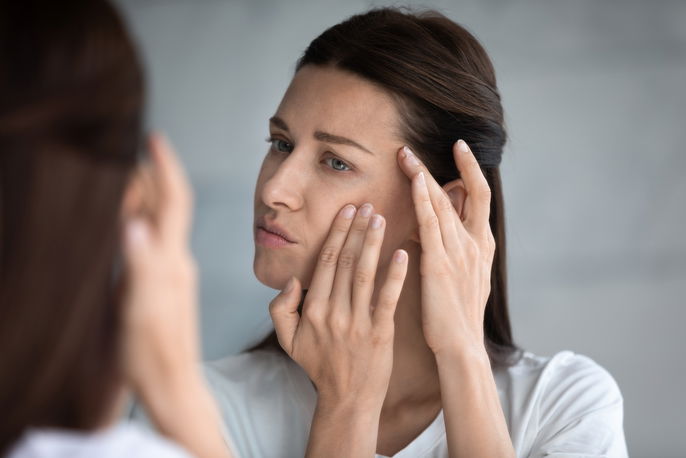Boils tend to heal on their own, usually taking less than two weeks to completely disappear. However, they can cause a lot of discomfort and are usually aesthetically unpleasant.
To speed of the treatment of a boil, you can opt to perform some measures at home, like applying a warm compress to relieve pain and discomfort or applying ointment to the area.
These are are some simple tricks that you can try at home to relieve discomfort, but help a ruptured boil heal faster:

1. Using an antibacterial soap
Wash the boil and surrounding skin daily with water and an antibacterial soap. This can help prevent any mild skin infections that can cause the boil to get bigger and more inflamed.
2. Applying a warm compresses
Warm compresses are a great natural way to relieve congestion and remove pus from inside the boil, helping it to heal faster.
To prepare a warm compress, add hot water to a bowl and soak a clean cloth or gauze in it. Squeeze out the excess water and apply directly over the affected area for 5 to 10 minutes. You can do this 2 to 4 times a day.
3. Using essential oils
Some essential oils have amazing anti-inflammatory, astringent and antiseptic properties which help to remove the pus, treat the infection and relieve any swelling and discomfort. Some of the best options include tea tree, lemon grass or cinnamon oil.
Also recommended: Tea Tree Oil: 8 Health Benefits, How to Use It & Side EFfects tuasaude.com/en/tea-tree-oilTo use the essential oils, you can add prepare warm compress as instructed above and add 3 to 5 drops of your chosen oil to the water before soaking the compress. You can also apply the oil to the skin. Before applying to the skin it's important to dilute the essential oils in a vegetable oil by adding 3 to 5 drops into a tea spoon of coconut oil or almond oil, for example.
4. Applying fresh garlic
Applying fresh garlic to a boil can help speed up healing, as garlic has allicin in its composition, with antibacterial properties. Learn more about the benefits of garlic and how to use it.
To get rid of a boil using garlic, crush a few cloves of garlic, and apply them to the boil on the skin. Cover with a clean, dry compress or towel and leave it on for about 20 minutes. Then wash with warm water and antibacterial or nild soap. You can apply fresh garlic to the boil up to twice a day.
Fresh garlic should not be applied to boils on mucous membranes, only on intact skin, and should also not be used by people allergic to garlic.
Also recommended: Lump on the Back of My Neck: 9 Causes (& What To Do) tuasaude.com/en/lump-on-the-back-of-my-neck5. Using castor oil
Castor oil is rich in ricinoleic acid with anti-inflammatory, analgesic and antimicrobial properties, which can help the boil to heal faster.
To use castor oil, apply a small amount of oil directly to the boil, after cleansing the skin with antiseptic soap. Castor oil can be applied 3 times a day.
What not to do
You should never squeeze or burst the boil, as the infection can affect deeper tissues of the skin, and worsen it. Squeezing the boil can also spread the pus to other areas of the skin, making treatment more difficult and time-consuming.
4. Applying an over-the-counter ointment
Antibiotic ointments can help remove pus from the boil and relieve pain and discomfort. These ointments should be applied about 2-3 times a day and can be purchased at the pharmacy.
Cautions during treatment
When treating a boil, it is very important not to squeeze or burst it, as the infection may worsen or spread to other areas of the skin. You should also:
- Wash your hands before and after touching the boil;
- Discard all compresses you use, by tossing them in the garbage after use;
- Avoid sharing clothes, tissues, sheets or towels with other people and wash them with boiling water, separate from other clothing.
These precautions can help prevent the infection from spreading to other areas of the skin and prevent other people from catching the bacteria that causes the boil, which can be transmitted through contact with the pus.






























